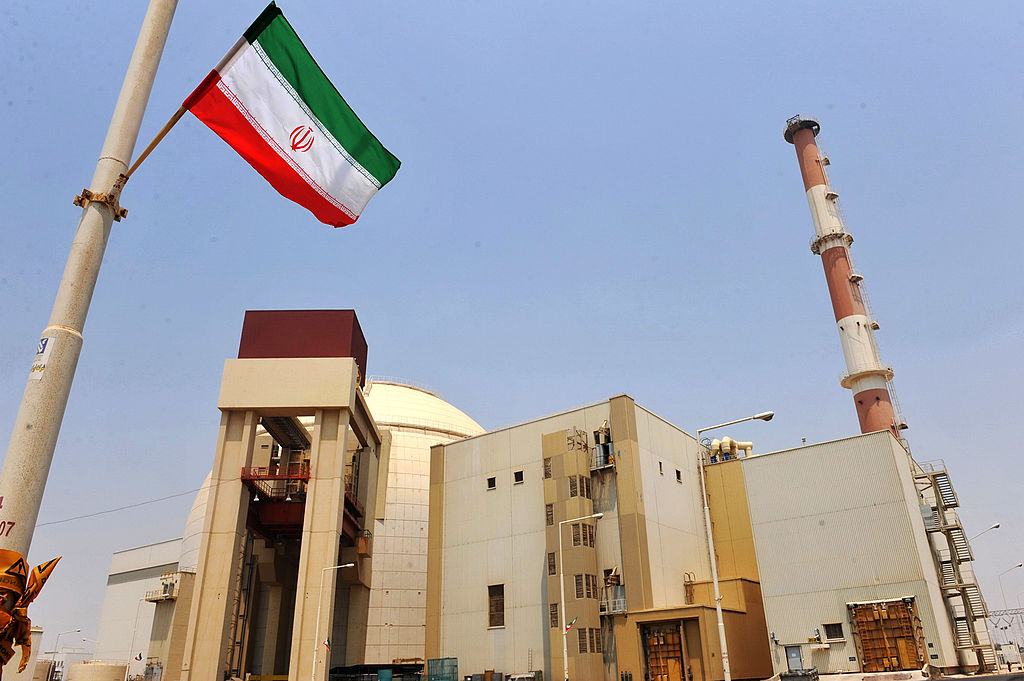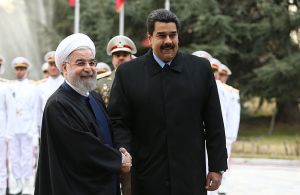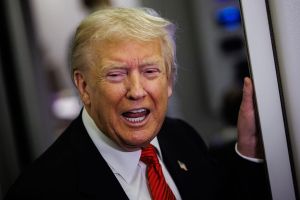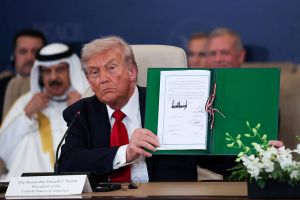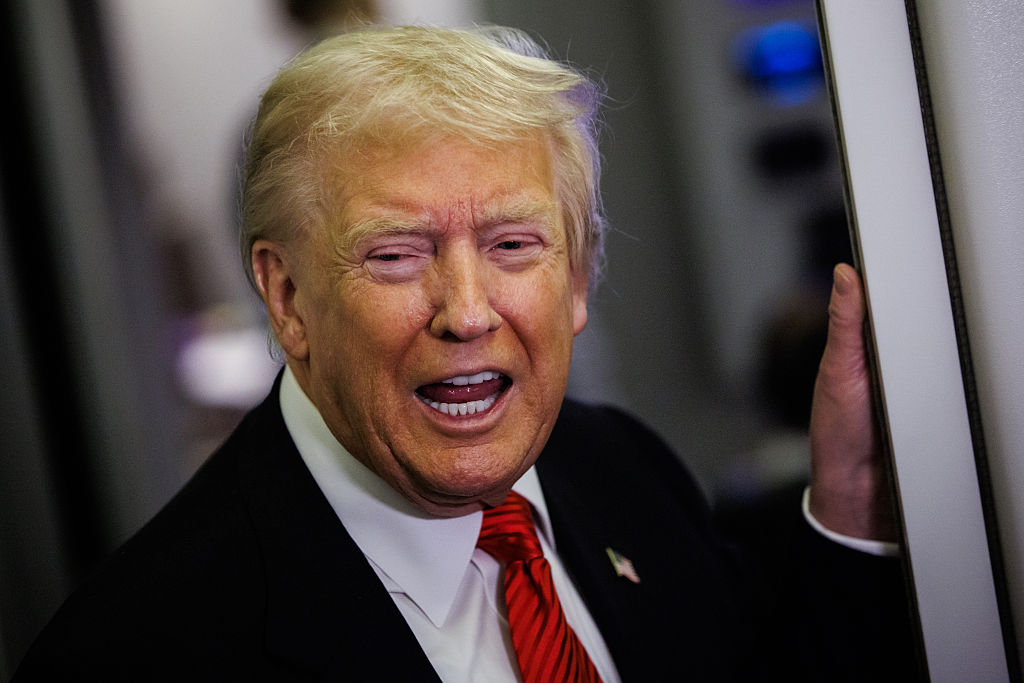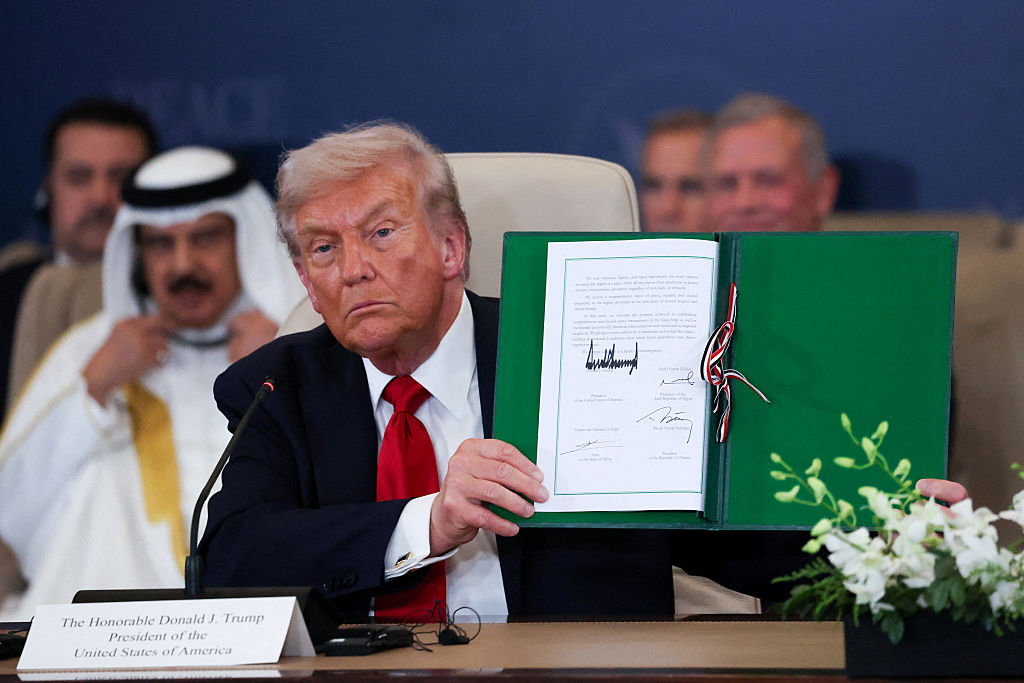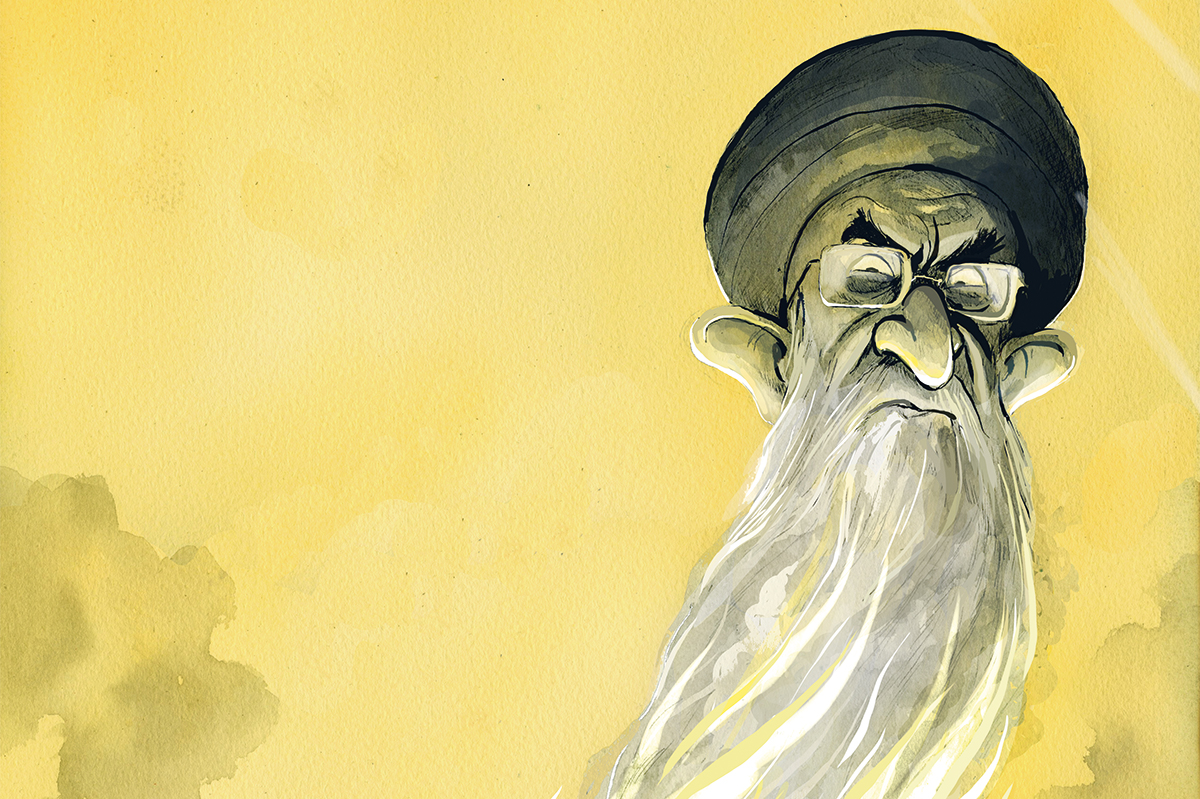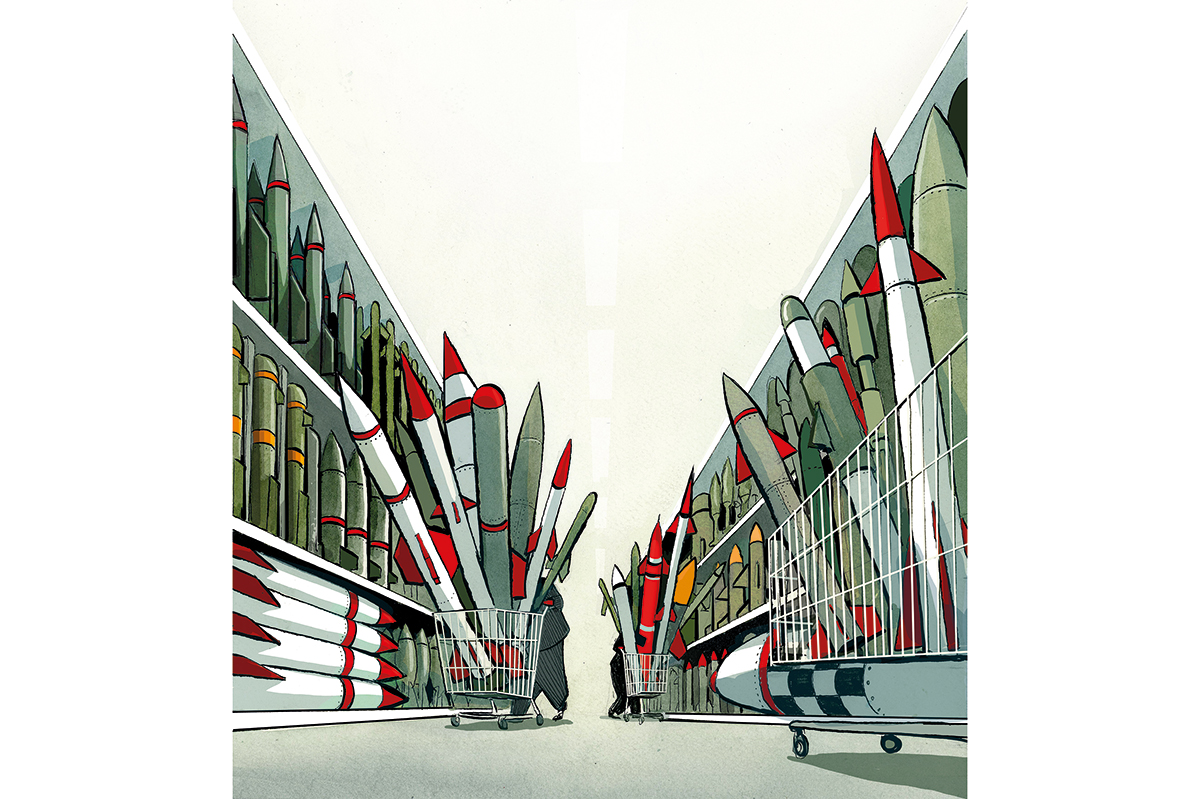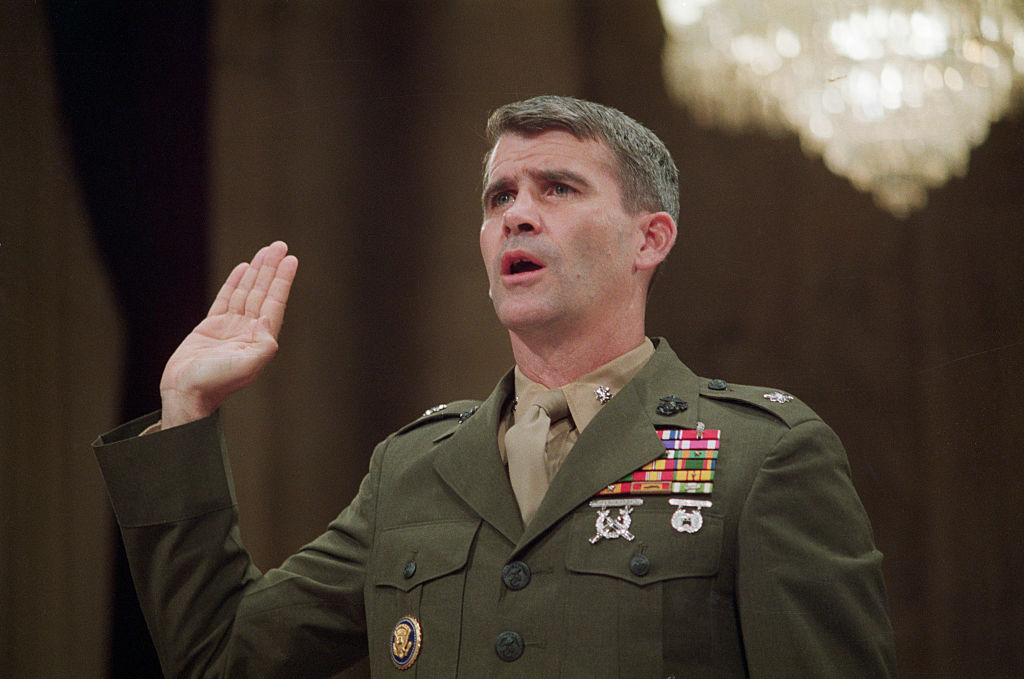One of the West’s great foreign policy failures of 2021 was the Iran nuclear negotiations, which remained bitterly unresolved as the clock passed midnight.
Having spoken to a number of diplomatic sources on different sides in recent weeks, it is hard to avoid the conclusion that the process has been woefully inept.
Not only has there been a dramatic failure to extract any concessions from Tehran — even a meaningful freeze on progress towards the bomb has remained elusive — but western negotiators have become enveloped in a dust cloud of infighting, competing agendas and tension.
All of this, of course, is a gift to the Iranians, who have entered 2022 in a commanding position.
In truth, the project was all but doomed to begin with. Before he was even elected, Joe Biden telegraphed his desperation to re-enter Obama’s JCPOA deal. “The good news is there remains a better way,” he wrote for CNN. “A Biden administration will make it a priority to set Iran policy right.”
The president might not have said in so many words that he would bend over backwards for a deal. But the Iranians are skilled at reading between the lines, and so are the senior members of his own administration.
Diplomatic sources have described Robert Malley, the US special representative for Iran, who is leading the negotiations in Vienna, as “the most dovish official we’ve ever seen.” In fact, the former head of the International Crisis Group — a think-tank devoted to dispute resolution, the very embodiment of the doctrine of softness — has bent over backwards so far that, as one official put it, he now speaks to Tehran from between his legs.
The talks began with a spectacular American misstep. As soon as the starting gun was fired, US negotiators amazed international partners by tabling a proposal that was so generous that the Iranians had to rub their eyes to believe it. In the minds of the Americans, this was a take-it-or-leave-it offer, straight out of the box. But it did not come across that way to Tehran.
Once the Iranians had caught their breath and climbed back onto their chairs, they set about demanding further concessions, in the belief that this was only the US opening position. The Americans continued to insist that this was a one-time offer — but crucially failed to back this up by walking away from the table or putting forward punishing consequences. So the Iranians kept on demanding. This resulted in what can only be described by the Hebrew term balagan, as any real sense of pressure and jeopardy dissolved.
Jake Sullivan, Biden’s national security advisor, is a more sensible voice in the American camp. But he has been consistently sidelined by Robert Malley, who has been able to craft his own version of the negotiations when reporting to Antony Blinken, the secretary of state. As a result, the true scale of the debacle is hidden from the White House — and President Biden has been preoccupied with domestic matters anyway.
As the impasse dragged on month after month, and the Iranians continued to strengthen their position by delaying things further while enriching uranium to higher levels, the mood among western diplomats became fractious. Officials could almost hear the Iranians rubbing their hands.
On the British side, things are more coherent. Despite some disagreements, London’s stance is firmer. This has led to the unexpected state of affairs in which Britain is more sympathetic to the Israelis than America. As a result, Jerusalem is expending particular effort in lobbying London to save the US from itself. British diplomats, however, are bogged down in two negotiations at once: the nuclear talks in Vienna and separate discussions about imprisoned foreign nationals in Tehran.
It is hard to avoid the conclusion that 2022 will be Iran’s year. The ayatollahs have already eased the effects of western sanctions by pivoting economically to China and Russia, and are picking off Gulf states one-by-one. Despite an alliance with Israel, the UAE is now Iran’s second-largest oil customer. Only the Saudis continue to hold entirely firm against Iranian influence.
The Israelis, meanwhile, have been ferociously lobbying the Americans to place a credible military option on the table, without which the negotiations lack teeth. But even if they were successful, there is little guarantee that strikes would work.
Iran’s nuclear installations are buried deep in multiple locations across the country, many of which are in civilian areas. This leaves the West with two options: either an Iraq-style mass ground invasion, or the biggest air campaign since the Second World War. Both of these can only be carried out by one country. And given the mood of the public in that country, and the instincts of its political leadership, there’s more chance of a Pride parade in central Tehran this year.
Moreover, Iranian proxy militias have long been embedded throughout the region. In the event of a war, they may be activated to strike multiple targets at once. Tehran could even shut down the Strait of Hormuz, which 30 percent of the world’s gas passes through.
Is there any glimmer of hope? Traditionally, the Americans tend to let their negotiators and envoys run until they fall, then replace them. There is a palpable feeling in diplomatic circles that the clock is ticking for Mr. Malley. If his head were to roll soon, the negotiations would be thrown into temporary disarray, and the ensuing delay would benefit Iran. But this creative destruction may allow a more serious player to lead the American delegation.
That, I’m afraid, is the best we can currently hope for. I wish there was better news, and so does the world.



